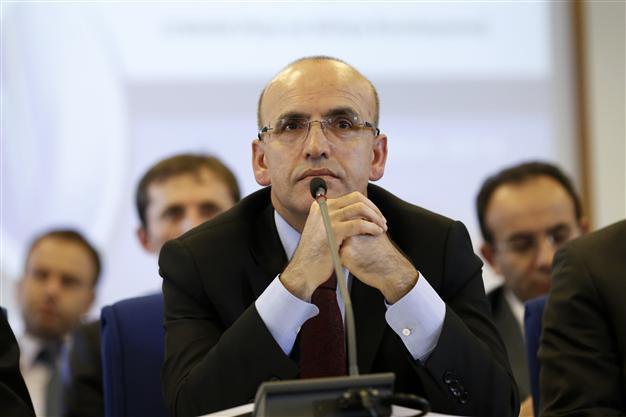Turkey warns three banks in fight against crime, terrorism
ANKARA - Anadolu Agency

Finance Minister Mehmet Şimşek says it is 'hugely important' for the Turkish authorities to be informed by banks about suspicious transactions.
Turkey has warned three banks and urged them to cooperate more effectively with the government to share transaction data “in the fight against terrorism,” Finance Minister Mehmet Şimşek said on Dec. 7.“There are three banks that do not cooperate with the Financial Crime Investigation Board [MASAK] efficiently in the detection of dirty money and in the fight against terrorism. We have warned them,” Şimşek said, without naming the banks.
He stressed that it is of great importance in investigating and detecting crimes for MASAK to be informed by banks about suspicious banking transactions, adding that the fight against criminal financial transactions is crucial for Turkey to increase its international credibility and maintain its formal economy.
“I cannot give their names for privacy concerns, but there are three banks that are hampering cooperation with us in our war against crime and terrorism. We have warned them and now we expect them to build much more effective cooperation with us. They considered our earlier warnings, and I am sure they will cooperate more now,” Şimşek said.
The Finance Ministry has been evaluating different sectors as part of the fight against informal economy, and inspected sports club last month. Şimşek had said no information was coming from the sports clubs, adding that there were major problems in the field regarding suspicious money transactions.
He said ministry officials would come together with different sectors’ representatives to increase the frequency and quality of feedback on money transactions, including financial institutes, cargo companies, foreign exchange bureaus, sports clubs, lottery and betting agencies and antique dealers.
Turkey’s Parliament approved a long-awaited anti-terrorism financing law in February 2013.
Turkey was on a “grey list” of countries drawn up by the 36-member Financial Action Task Force (FATF), a money-laundering watchdog, for failing to implement the legislation required by its members despite being pressed for years.
The law, which allows alleged “terrorist” accounts to be frozen without a court order, provides for a variety of penalties including imprisonment for those found to be abetting terrorism, the parliamentary officials told Reuters.
Had Turkey failed to pass the law by the Feb. 22 deadline, it would have risked expulsion from the FATF, moving it onto a blacklist alongside Iran and North Korea. That could have restricted foreign activity with Turkish banks, hampered Turkey’s ability to raise funds abroad and could have affected its credit rating.
















